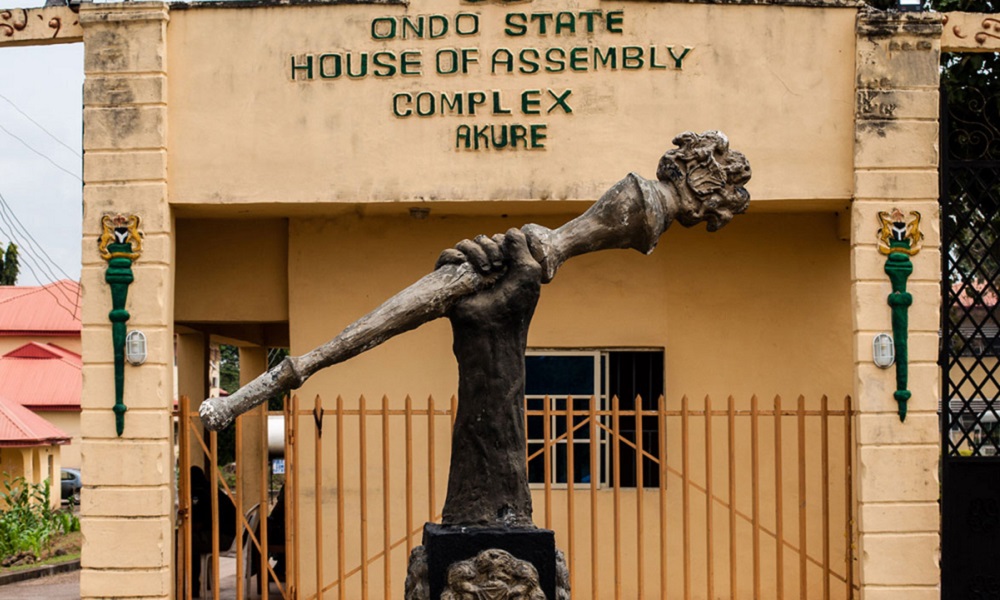News
Power supply: NASG distributed 150 transformers

Governor Abdullahi Sule of Nasarawa State has said that his administration has so far distributed 150 transformers aimed at improving power supply across the state.
This is just as Governor Sule expressed readiness to build another power substation estimated at five hundred million naira, in order to improve electricity supply especially in Lafia, the state capital.
Governor Sule made this known when he met with Regional Manager of the Abuja Electricity Distribution Company (AEDC), Engr. Baro Ahmed, at the Government House on Wednesday.
The meeting, which was at the instance of the Governor, was aimed at addressing the persistent power supply problem, especially in Lafia and environs.
According to the Governor, though it shouldn’t be the business of government to buy transformers, especially that AEDC is the only company responsible for collecting revenue from power consumers, his administration has gone ahead to buy 150 transformers in order that communities in the state could be linked to the national grid.
He showed his readiness to enter an agreement with the management of the AEDC with a view to constructing another power substation in Lafia, estimated to cost five hundred million naira.
The Governor thereafter directed the General Manager of the Nasarawa Electricity Power Agency (NaEPA), Engr. Abubakar Danjuma Ango to arrange a meeting with the management of AEDC in Abuja where modalities for the agreement would be discussed.
Governor Sule said he called the meeting because of the persistent complaints from electricity consumers from across the state, who continously express their dissatisfaction with power supply recently.
He said he wanted to hear from AEDC why power supply especially in Lafia, the Nasarawa State capital has been epileptic.
On realizing that the issue is not even the matter of distribution, with Lafia that used to get 20 megawatts of electricity now only able to get seven megawatts, the Governor blamed the AEDC for lacking a robust communication system to inform their consumers of what is happening.
He added that sometimes the AEDC takes the heat that is not theirs because the company is not communicating for their consumers to get to understand what is happening.
“People of Lafia were supposed to be getting 20 megawatts every day. We are only getting 7 megawatts. You need to create public awareness. The country is not generating enough but that you are having peculiar issues here in Lafia,” he said.
Governor Sule insisted that AEDC should have opened up to the people of Lafia by telling them that four years ago, Lafia needed only 4 megawatts daily but that now it needs 20 megawatts because of the springing up of mini industries.
He explained that his administration has invested huge resources in the area of power and is ready to take necessary steps towards ensuring steady electricity supply in the state, especially in Lafia, the state capital.
He reiterated the readiness of his administration to work with critical stakeholders in the power sector in order to ensure improved power supply to the state and especially Lafia, the state capital.
Also speaking, Secretary to the Government of Nasarawa State, Barrister Mohammed Ubandoma Aliyu, urged officials of the AEDC to proceed with caution when they go out to collect electricity dues, especially that the power supply in the month of February was poor.
The SGNS called on AEDC to consider the prevailing hardship being experienced across the country, and not to charge their customers exorbitantly, particularly that they did not enjoyed steady power supply in this month of February.
Earlier, General Manager, Nasarawa Electricity Power Agency (NaEPA), Engr Abubakar Danjuma Ango, said the meeting was at the instance of Governor Sule, for the officials of the power company to ascertain factors responsible for the poor power supply in the state especially Lafia and its environs.
Responding, Regional Manager of Abuja Electricity Distribution Company (AEDC) Engineer Baro Ahmed, disclosed that presently the country is generating only 4000 megawatts of power, which he said is grossly inadequate.
Engr. Ahmed pointed out that Lafia that used to get 20 megawatts daily now gets only 7 megawatts.
He however explained that Lafia is currently experiencing power supply issues because of peculiar problems associated with overloading of available feeders.
The AEDC regional manager accepted to communicate further on the willingness of the state government to partner the power company with a view to constructing another substation that would serve to decongest the valuable feeders.
On his part, AEDC Lafia Manager, Isa Mohammed, said an additional power substation would greatly improve power supply especially in Lafia the state capital.
He commended Governor Sule for his efforts to attract investors into the state, which has brought improved revenue to the AEDC.
“Today, because of the emergence of mini industries, Lafia is needing about 20 megawatts daily,” he said.
He particularly appreciated the Governor for doing a lot to ensure that power is supplied across the state.
“I never new a Governor will come, a cable you buy, transformer you buy. What are we talking about? Your people should appreciate you. You are doing a lot,” the Lafia AEDC Manager said.
News
Army acquires 43 drones, wings 46 Turkey-trained personnel

The Federal Government has bolstered the Nigerian Army’s operational capacity with the acquisition of 43 Bayraktar TB2 drones, primarily for deployment in the North-West theatre of operations.
The Commander of the Nigerian Army Space Command, Brig. Gen. U.G. Ogeleka, disclosed this on Tuesday during the winging ceremony of 46 personnel trained in the operation and maintenance of the drones.
The initiative, codenamed Project Guardian, aims to strengthen military operations against insurgency and other security challenges in the region.
“Between May and September 2022, a team of 35 officers and 11 soldiers from the Nigerian Army’s routinely piloted aircraft system regiments underwent specialised training in Turkey on the operation and maintenance of the Bayraktar TB2 drones,” Ogeleka said. “The training crew included multi-piloted aircraft pilots, mission operators, avionics, and mechanical engineers and technicians.”
Out of the 46 trained personnel, 14 are multi-piloted aircraft pilots, seven are mission operators, and 23 are engineers and technicians.
Ogeleka presented 22 of the trained personnel for the winging ceremony, noting that the others are actively engaged in operational duties.
The Chief of Army Staff, Lt. Gen. Olufemi Oluyede, praised the acquisition of the drones and the training of personnel as significant steps toward enhancing the army’s professionalism and combat readiness.
“The winging of these 22 officers and soldiers as pilots and certified maintenance engineers is a morale booster for others in service,” Oluyede said. “It confirms their readiness to operate and maintain the Turkish Bayraktar TB2 drones in our inventory.”
Oluyede further revealed plans to procure additional unmanned aerial systems in the coming year to strengthen military operations across all theatres in the country.
The drones will play a critical role in addressing security challenges in the North-West, a region plagued by banditry and insurgency.
Their advanced surveillance and strike capabilities are expected to significantly enhance the Nigerian Army’s operational effectiveness.
This development underscores the government’s commitment to leveraging technology to improve national security and highlights the Nigerian Army’s drive to modernize its arsenal and build capacity within its ranks.
With more unmanned aerial systems set for acquisition, the military’s ability to conduct precise, real-time surveillance and combat operations is poised for substantial improvement.
News
Ondo Assembly mulls 10-year jail term for land grabbers

The Ondo State House of Assembly is considering a bill that proposes harsh penalties for land grabbers, including up to 10 years imprisonment for forceful entry or illegal takeover of properties.
Governor Lucky Aiyedatiwa has further reinforced the fight against land grabbing by signing an Executive Order to prohibit such activities.
The order aims to end forceful entry, illegal occupation of landed properties, and fraudulent or violent conduct related to land in the state.
To strengthen enforcement, the governor has established a Task Force to protect property rights, uphold the rule of law, and ensure a secure environment for property owners and residents.
The proposed bill also includes severe penalties of up to 21 years imprisonment for selling family land without the consent of the family head or secretary.
Hon Moyinolorun Ogunwumiju, the lawmaker representing Ondo West Constituency 1, who sponsored the bill, spoke during a public hearing on the bill
Hon Ogunwumiju assured stakeholders that the bill would improve land administration, protect landowners, attract investors, and foster peace and development in the state.
He explained that the bill sought to regulate land dealings, protect landowners and buyers, penalise encroachers, and criminalise unregistered agents.
Ogunwumiju said the bill proposed penalties of up to 10 years’ imprisonment for forceful entry or takeover of properties and up to 21 years for selling family land without the consent of the family head or secretary.
Speaker of the Assembly, Hon Olamide Oladiji, urged committee members and stakeholders to ensure the bill served the interests of the people.
He said the bill would maintain order in the state and impose necessary sanctions on offenders.
“Land grabbers pose a significant threat to property acquisition. Their activities ranging from trespassing, forceful occupation, and illegal sales of properties to multiple buyers must be confronted decisively.”
Majority Leader and Chairman of the House Committee on Rules and Business, Oluwole Ogunmolasuyi, said the bill, would benefit the society at large
Ondo Commissioner for Justice and Attorney General, Kayode Ajulo said the bill would enhance land administration and complement the executive order signed by Governor Aiyedatiwa.
Stakeholders including traditional rulers called for full implementation of the bill when signed into law.
News
FG earmarks N250bn for Lagos-Abuja rail project in 2025 budget

The federal government has made an allocation of N250 billion in the 2025 budget for the Lagos–Abuja mass transit rail project.
This budgetary investment is part of a broader plan to revitalize Nigeria’s infrastructure and stimulate economic growth.
The government’s focus on infrastructure development is rooted in the belief that it is a cornerstone of long-term economic planning.
By investing in critical infrastructure such as roads, railways, energy, healthcare, and education, the administration aims to create a conducive environment for both domestic and foreign investment.
The Lagos-Abuja rail project, in particular, is expected to have a transformative impact on the Nigerian economy.
By improving transportation connectivity between two major economic hubs, the project will facilitate the movement of goods and people, reduce logistics costs, and stimulate economic activity.
Additionally, the project is expected to create numerous jobs, both directly and indirectly, contributing to the country’s overall employment rate.
The government’s infrastructure investments are also aimed at addressing regional disparities.
By connecting different parts of the country through improved transportation networks, the administration hopes to stimulate economic growth in underserved regions, reduce poverty, and promote equitable development.
The 2025 budget signals the government’s commitment to transforming Nigeria’s infrastructure landscape.
By investing in critical projects like the Lagos-Abuja rail line, the administration aims to lay the foundation for a more prosperous and connected Nigeria.
However, the success of these initiatives will depend on effective planning, efficient implementation, and transparent governance.
-

 News22 hours ago
News22 hours agoGov Adeleke Speaks On Death Sentence For Chicken Thief
-

 News18 hours ago
News18 hours agoNetizens Slam Lawmakers As They Sing Tinubu’s Anthem At Budget Presentation
-

 News15 hours ago
News15 hours agoFinally, PDP Flushes Out Suspended National Vice Chairman, Ali Odefa
-

 News22 hours ago
News22 hours agoDelta Assembly pardons two suspended members
-

 News11 hours ago
News11 hours agoReps Call for Revival of NAPAC to Boost Transparency, Accountability
-

 News22 hours ago
News22 hours agoJust in: CBN Imposes N100k Bar on PoS, Issues Warning to Operators
-

 News22 hours ago
News22 hours agoHeavy Security Presence at National Assembly as President Tinubu Presents 2025 Budget
-

 News11 hours ago
News11 hours agoReps Recommends Delisting NECO, UI, Labour Ministry, 21 Others From 2025 Budget








